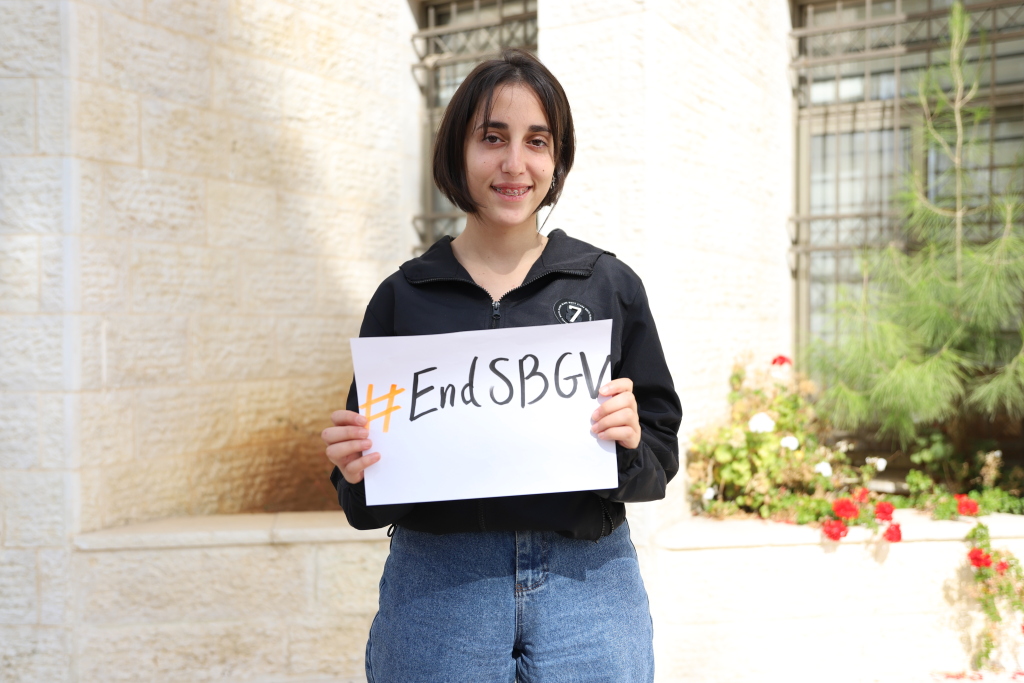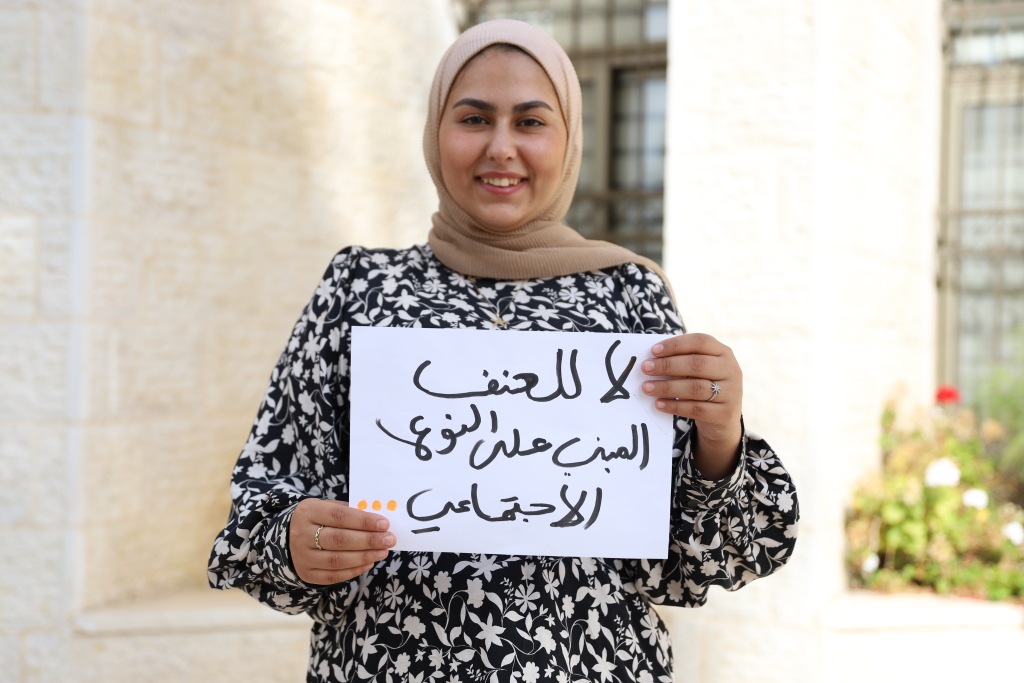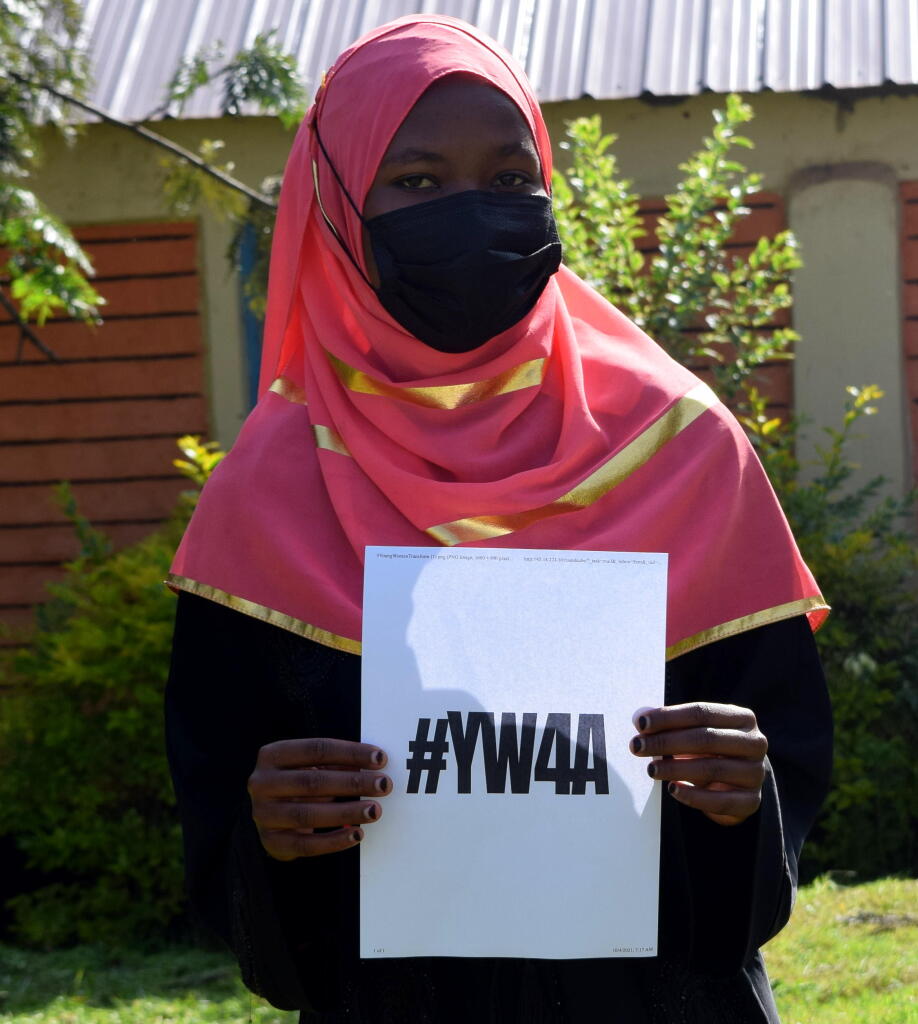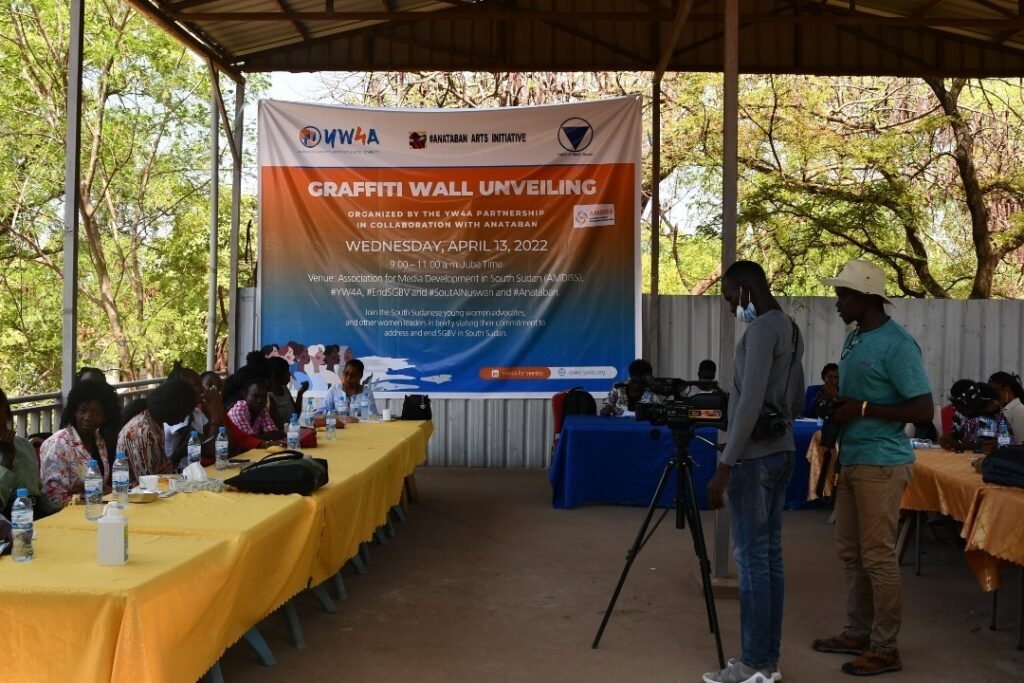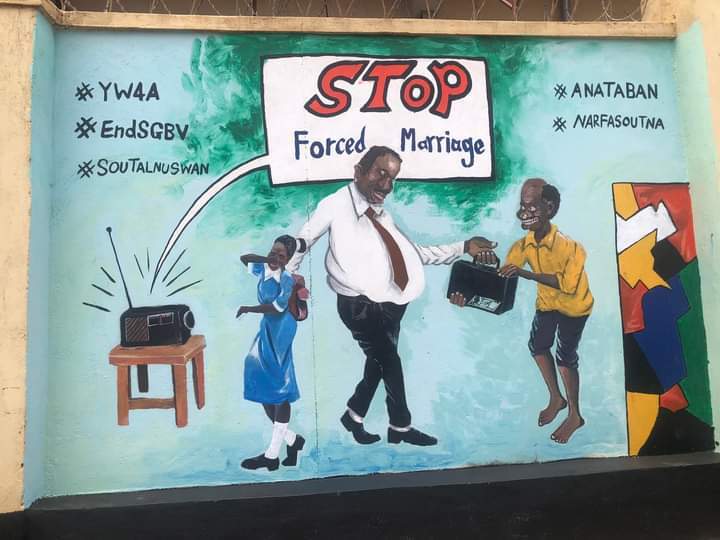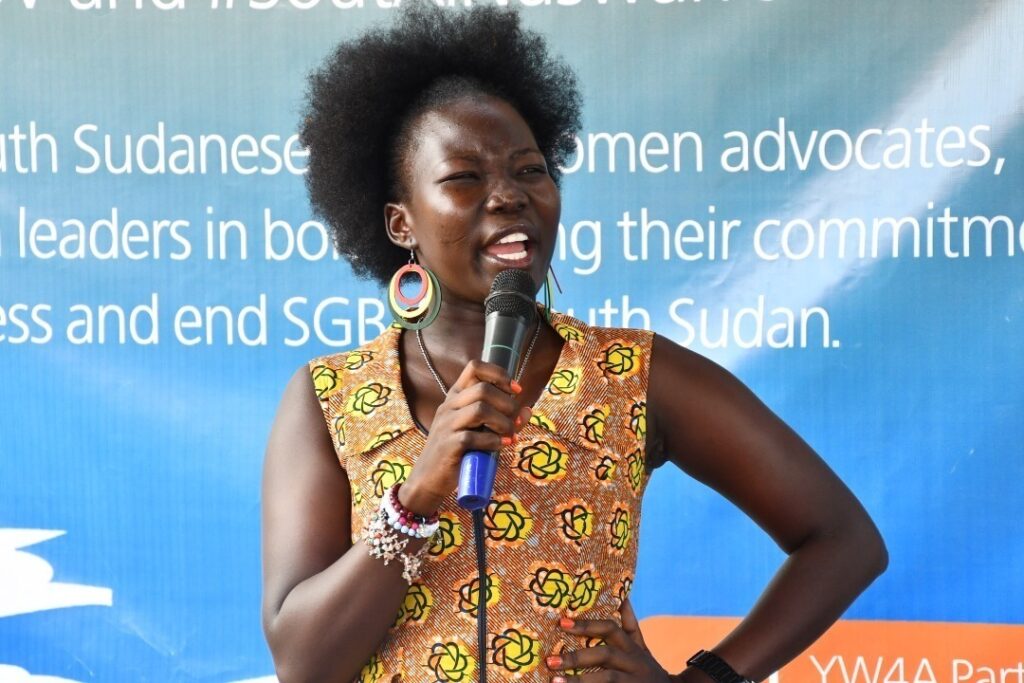Launch of the YW4A Partnership and Initiative
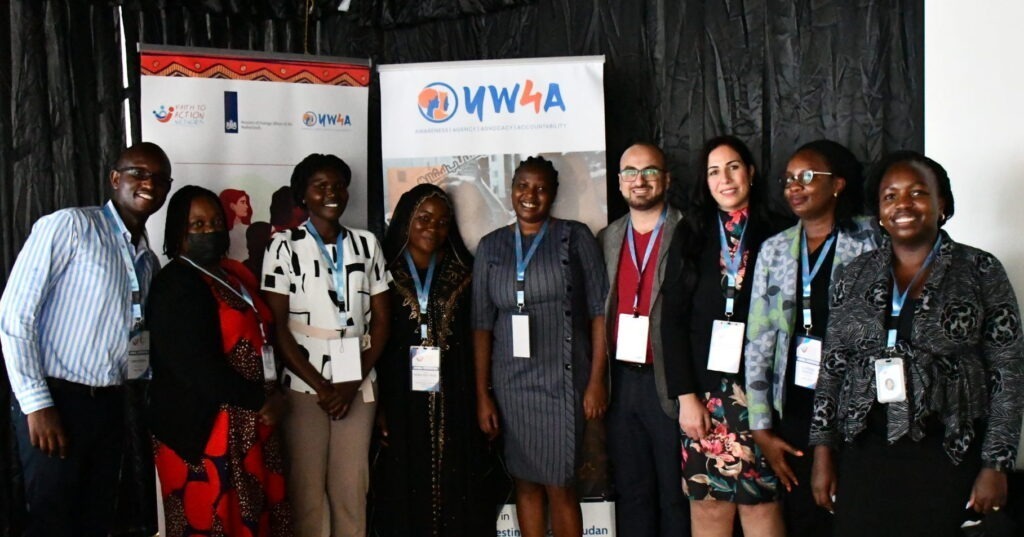
On April 4, 2022, World YWCA and its partners officially launched the Young Women for Awareness, Agency, Advocacy and Accountability (YW4A) Partnership and Initiative. This was done through a global webinar that unpacked the fundamentals of the partnership and initiative. The webinar was moderated by Adelle Onyango, a media personality and active sexual and gender-based violence (SGBV) advocate inspired by her own experience of sexual abuse.
Following a year of setting up the programme teams and structures across Africa, the Middle East and Europe, and determining the baselines for the four programme Pathways, the YW4A partners were finally ready to present the programme to the world. The launch webinar brought together a panel of women rights advocates from across the globe, to demonstrate the relevance and timeliness of the initiative in the Africa and MENA context. We captured a few opinions of the programme:
“At the heart of YW4A, was the belief in the value of co-creation and design, bringing varied and diverse organisations and leaders to dream of what is possible, when we work across sectors, and when we centre the leadership of young women,” said Casey Harden, the World YWCA General Secretary.
Casey added that with this partnership with the Netherlands Government’s Ministry of Foreign Affairs and partners, there is a shared vision of a vibrant civil society space that tackles the root cause of inequality through lobbying and advocacy. Civic space is a required precondition for structural change.
These sentiments were echoed by Froukje Gaasterland, the Senior Policy Officer in the Women’s Rights and Gender Equality Taskforce of the Dutch Ministry of Foreign Affairs.
“Embedding and strengthening the voices of young women and girls, in efforts to prevent and stop violence against all women and girls, and recognising them as agents of change is a priority for the Dutch government.”
“Working in strategic partnerships with faith-based organisations and leaders, young women, and women’s rights organisations and leaders on the fundamentals of ending violence against women and girls is extremely important to realise sustainable results,” she said.
Hawa Puzzo Ally, an activist and young woman leader in the YW4A programme, who is also a survivor of abuse underpinned the importance of working with religious leaders and institutions in the programme. Religion is central to shaping community norms, therefore this becomes strategic in mentoring young women and men into respecting women’s rights.
The YW4A partners also launched the programme website, LinkedIn page, logo in English and Arabic, as well as the programme’s unique media hashtags #YW4A and #YoungWomenTransform. The partners have also scheduled a series of activities to launch the programme to demonstrate the scale and potential impact of the initiative. These include the unveiling of a graffiti wall (13 April) created by young female artists in partnership with Anataban- an artist creative that uses various art forms to speak about injustice, including SGBV. In Egypt, YW4A will host a television programme (28 April), focusing on the role of religion in gender equality and the YW4A partnership’s unique positioning in addressing challenges/opportunities in religious spheres.
The YW4A programme model pilots an interdisciplinary approach to young women’s transformative leadership and tackling SGBV in Egypt, Kenya, Palestine, and South Sudan. The challenges in each country are complex, often rooted in long held norms and practices. Typically, the factors contributing to the violence and discrimination that young women face are common. These are:
- Discriminatory family laws and sexual violence laws that hinder women’s rights and offer limited protection or justice to survivors of violence.
- Patriarchal and ageist norms and practices that limit young women’s agency, leadership and participation in private, public and civic spaces.
- Gender-discriminatory faith norms and practices, usually rooted in religious conservatism, in some cases extremism, and misinterpretation of religious and sacred texts.
- Constrained resource capacity, societal backlash and threats to safety and security of feminist and women’s rights advocates and civil society organisations (CSOs).
The YW4A programme therefore uses the following approaches to address this:
- A feminist and women’s rights approach which is based on the universality of human rights, and challenges existing unequal and discriminatory power relations. YW4A centralises young women’s leadership, voice, and agency in this change process.
- An ecosystem approach founded on the interactions of complementary advocacy strategies and diverse consortium partners and their networks.
- An intergenerational and youth approach rooted in intergenerational dialogue, mentorship and action, centred on young women’s leadership being vital for a sustainable, strong, and progressive women’s empowerment movement.
- A faith-based approach that recognises that in contexts where religion is a salient aspect of culture, engaging faith actors offers an inalienable pathway of influencing change to address SGBV and gender discrimination.
- A community-based approach that is participatory and acknowledges communities’ role in constructing norms, attitudes, and behaviours towards women’s rights and gender equality. This includes engendering positive masculinities among men and boys.
A partnership and alliance engagement approach that values collective action for lasting social change, by bringing together the Netherlands Government, young women, feminists, and gender equality champions, faith-based advocates, gender researchers, and legal and policy experts. YW4A facilitates common ground and convergence with various WROs, FBOs, and other women’s rights advocates for learning and exchange, as well as joint action to influence norms, policies and laws that protect the rights of women in the four countries.
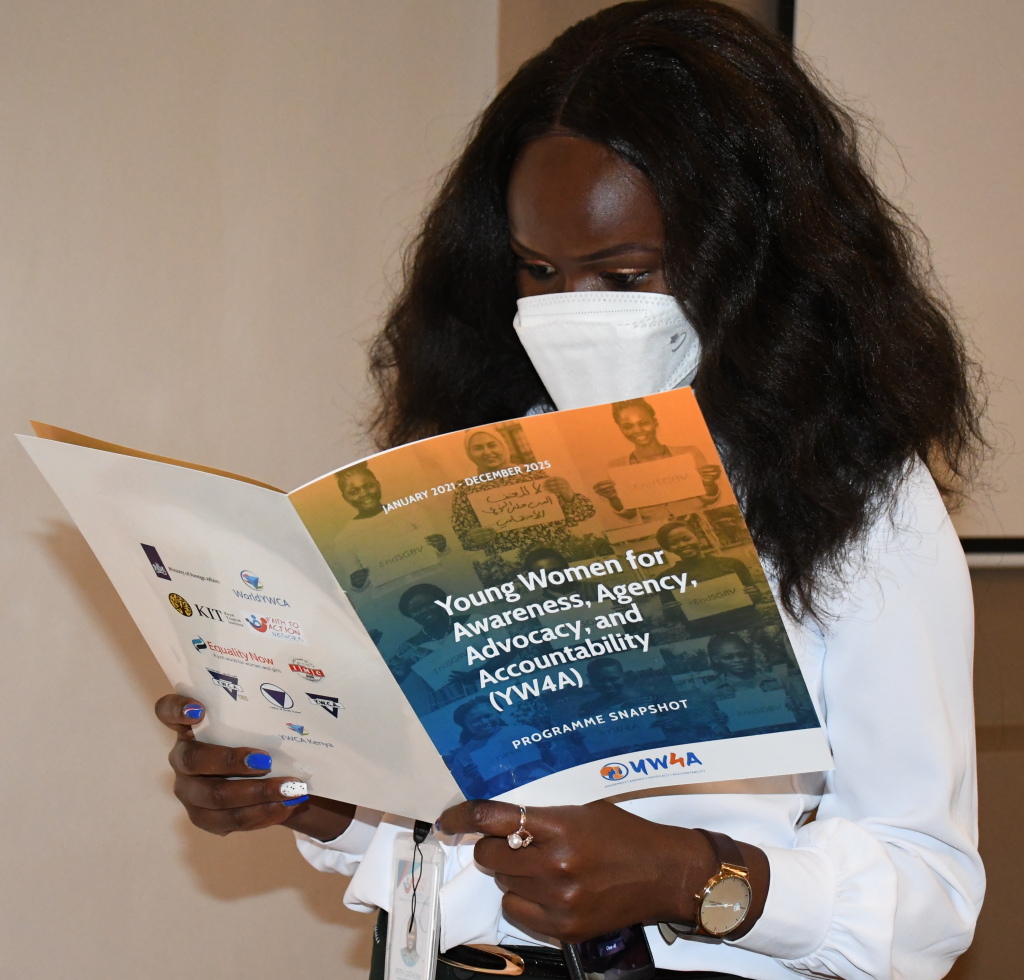
Read all the latest updates of YW4A
Watch YW4a Global Launch Webinar
